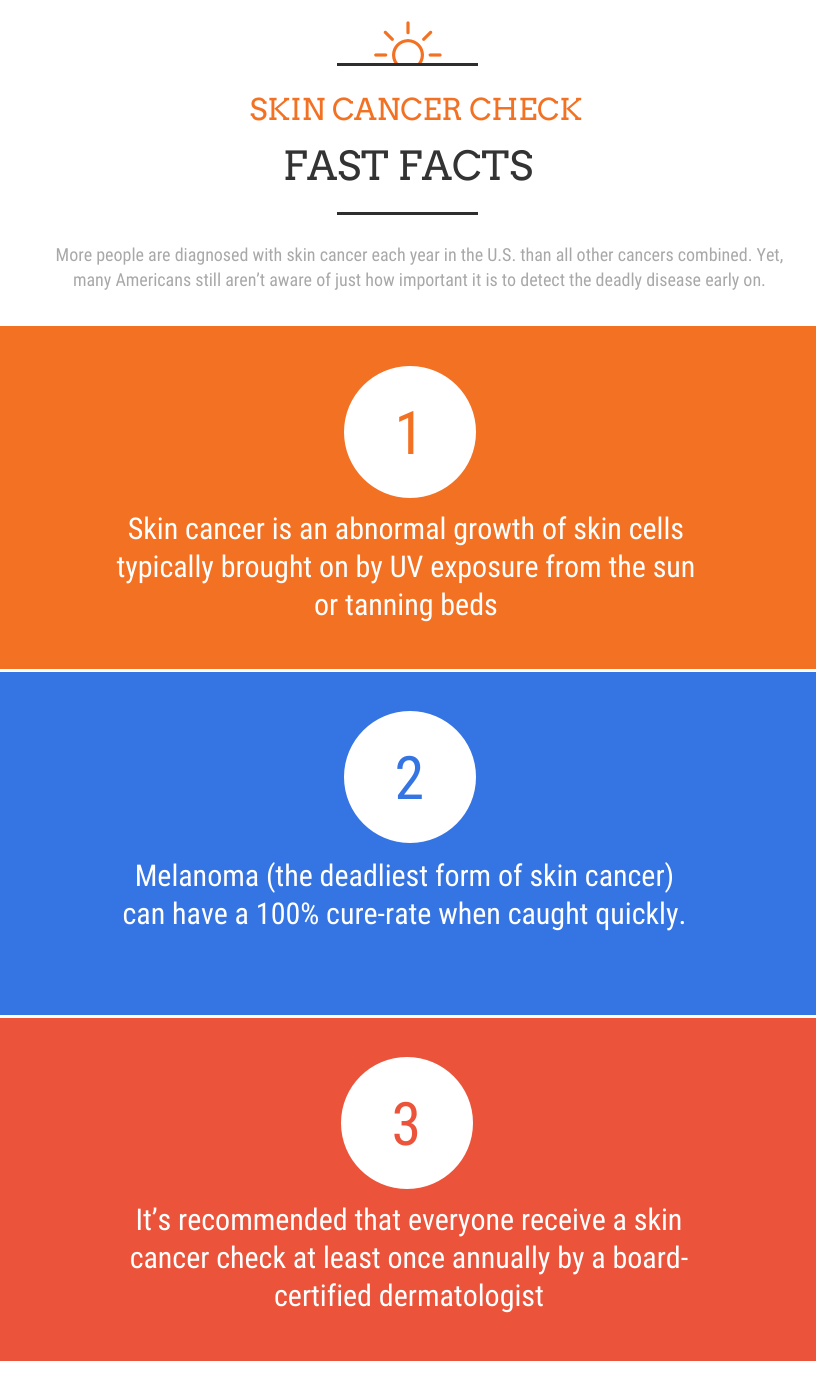How Often Do I Need To Get A Skin Cancer Check?

More people are diagnosed with skin cancer each year in the U.S. than all other cancers combined. Yet, many Americans still aren’t aware of just how important it is to detect the deadly disease early on. Even in otherwise healthy adults, skin cancer can spread quickly via the bloodstream to vital internal organs. Skin cancer is an abnormal growth of skin cells typically brought on by UV exposure from the sun or tanning beds. It comes in all shapes, sizes, and often goes unnoticed. Although skin cancer is more common for people with certain risk factors, it’s still vital for everyone to go through a screening every so often. Early detection could be the difference between life and death. Skin cancer that is found quickly can easily be treated and removed. In fact, melanoma (the deadliest form of skin cancer) can have a 100% cure-rate when caught quickly. Starting in early adulthood, it’s recommended that everyone receive a skin cancer check at least once annually by a board-certified dermatologist. If you’ve got one or more risk factors for skin cancer, you may want to consider a screening every 6-months. People with Type 1 or Type 2 skin are more likely to get skin cancer. You probably have one of these skin types if you have a hard time tanning or burn easily. Type 1 skin qualities include fair skin, blue eyes, light hair, and freckles. Other risk factors include people who have had prolonged exposure to UV rays either from the sun or tanning beds. If you or a 1st-degree relative (a sibling or parent) have had skin cancer in the past, you’re also at a higher risk. Everyone should learn how to complete a basic self-exam and perform one approximately every 3-months. If you see any of the following warning signs or suspect you might have skin cancer, schedule an appointment right away.
Schedule a consultation to achieve the healthiest skin of your life
Contact Us- A skin growth that changes in size, color, shape, or texture.
- A mole that has an irregular outline, is bigger than the size of a pencil eraser or appears suddenly.
- A spot that itches, hurts or bleeds.
- An open sore that doesn’t heal within three weeks.
Skin cancer prevention should be taken seriously. Be sure to wear sunscreen and protective clothing when you expect to be outdoors for prolonged periods of time. To schedule your skin cancer check at Dermatology Associates of Plymouth Meeting, serving the Philadelphia metro area, including The Main Line, Chestnut Hill, Blue Bell, Gwynedd, and Flourtown, please fill out the form on this page or call 610.828.0400 .
